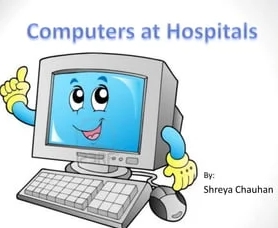In today’s modern healthcare facilities, computers play a critical role in ensuring efficient and effective patient care. From managing patient records to conducting complex medical procedures, computers have become an indispensable tool for healthcare providers.
Streamlining Patient Records
Computer systems are used to manage patient records, allowing healthcare providers to access important information quickly and accurately. This helps in making informed decisions and providing the best possible care to patients.
Diagnosing and Treating Patients
Computers are used to analyze medical images, conduct diagnostic tests, and even assist in performing surgeries. Advanced technologies like MRI machines and robotic surgical systems rely heavily on computer systems to deliver accurate results.
Improving Communication
Computer systems enable healthcare providers to communicate with each other in real-time, share important information, and collaborate on patient care. This improves efficiency and coordination among different healthcare teams.
Enhancing Medication Management
Computers are used to track medication doses, check for potential drug interactions, and ensure that patients receive the correct medications at the right time. This helps in preventing medication errors and improving patient safety.
Ensuring Data Security
Healthcare facilities rely on computer systems to store sensitive patient information securely. Data encryption, firewalls, and other security measures are put in place to protect patient privacy and comply with healthcare regulations.
Empowering Patients
Computers allow patients to access their medical records, schedule appointments, and communicate with healthcare providers through online portals. This empowers patients to take an active role in managing their health and stay informed about their treatment plans.
Conclusion
In conclusion, computers have revolutionized healthcare facilities by improving patient care, streamlining operations, and enhancing communication among healthcare providers. Their critical role in modern healthcare cannot be overstated, as they continue to drive innovation and efficiency in the delivery of healthcare services.

